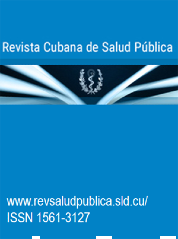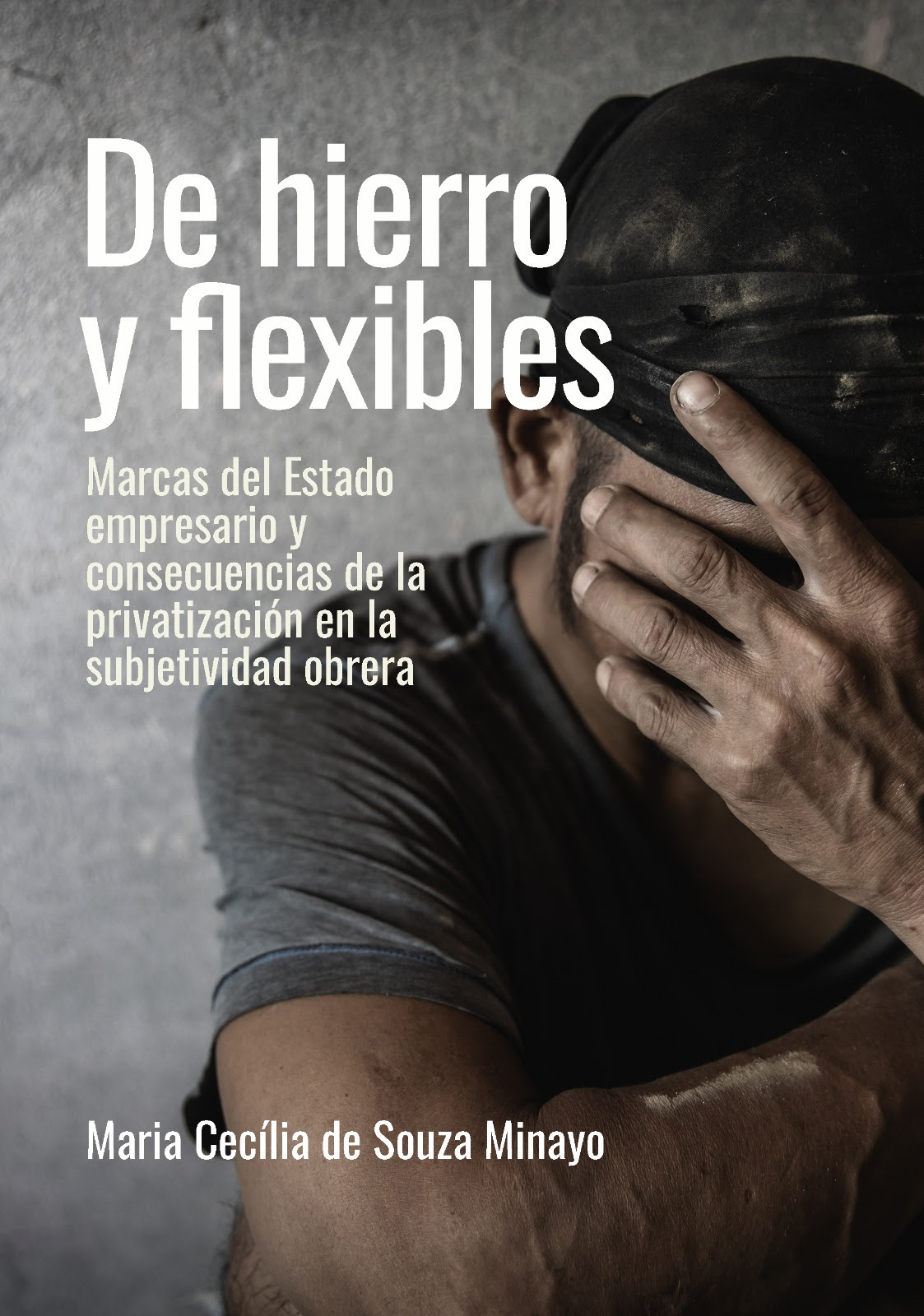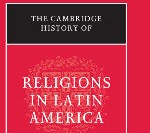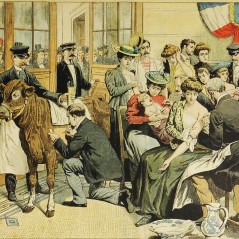December 2015
Vivian Mannheimer| HCS-Manguinhos Blog
The conference “Public Health and Society in Latin America and the Caribbean” aims to promote the interaction between Brazilian and and Latin American researchers and their Caribbean counterparts exploring the complex relationship between public health and these societies from the colonial to the present era.
The conference will be held from 6 to 9th July 2016, in Trinidad and Tobago and will be hosted by the Department of History, The University of the West Indies, St. Augustine in collaboration with the University of York and Casa de Oswaldo Cruz/ Fiocruz, Brazil.
In an interview to HCS-Manguinhos blog, Magali Romero Sá, Deputy Director of Research, Education and Science Communication at Casa de Oswaldo Cruz, Fiocruz, one of the conference organizers, explains the main topics to be addressed and the importance of this event. She also discusses issues related to the conference, such as imperialism and decolonization in Latin America, traditional knowledge and tropical medicine.
The importance of this event is mainly the interaction between Brazilian and and Latin American researchers and their Caribbean counterparts. The scientific net of Latin American and Caribbean science historians have historically been focused on Europe, the United States and on national and regional studies.

Magali Romero Sá is deputy-director of research at Fiocruz.
55 (21) 3865-2280 | 55 (21) 3865-2121
Casa de Oswaldo Cruz | Fundação Oswaldo Cruz
Strengthen the dialogue of the Latin American and Caribbean science historians will enrich scientific exchanges on key issues of Tropical Medicine and other medical and scientific knowledge. Besides that, this interaction will contribute to the formation of a network of historians aimed to discuss the complex multi-directional movement of ideas and practices between Europe, the Americas and the Caribbean, challenging the old diffusionist model of medicine and health in non-European contexts.
Future networks will extend the existing historiography, not only exploring the complex interaction between the European medical and scientific knowledge and reproducing it locally, but also increasing the flow of ideas and practices between Latin American and Caribbean countries, which has so far received little attention from scholars.
This global circulation of ideas that leads to successive reinterpretations will always be better studied if based on historical sources from different countries, languages and traditions. Therefore, these multiple sources can shape a more effective basis for a solid international collaboration.
The main topics of the event are:
. Imperialism, decolonization and the role of public health;
. International, regional and community organizations and the development of public health;
. Pluralism: conflicts between traditional medicine and biomedicine;
. Demographics, migration and disease control;
. Mental health;
. Medical community and engagement in public health;
. New technologies and procedures and its impacts on society;
. The role of ethnicity and class in public health policies;
. Tropical Medicine and its impact on colonial societies, politics and the economy.
How can we relate Latin America’s past, marked by imperialism and decolonization, with the development of its public health systems?
Although in recent years researchers have been working on the multidirectional movement of ideas and practices between Europe and other parts of the world as well as on the mutually constitutive character of imperialism, post-colonial ideologies and development projects, many gaps remain in the historiography.
Relatively little attention has been given to the production of medical and scientific practices in the Caribbean and Latin America, and the same has happened with as the underlying knowledge used to reshape the design and implementation of medical work and public health.
This dynamism in Latin America and the Caribbean also had a far-reaching impact on imperial powers, including Britain, the US, France, Portugal and Spain, and is one of the themes to be explored at the event.
How traditional knowledge and medicine of indigenous peoples were incorporated into the public health policies on the continent, if they were at all?
Traditional knowledge, considered unscientific, was initially disqualified, but there were also appropriations and transformations using this traditional knowledge within the canons of Western medicine.
Despite the ambition of Western medicine to get the monopoly of healing, new studies have revealed that the production of medical and scientific knowledge in Latin American countries implied in complex negotiations with native populations, often refractory to the interventions of Western medicine.
Overall, the trend that prevailed was the disregard of indigenous conceptions by official practice, although local cultural components were also present.
What is the impact of tropical medicine on colonial societies?
Tropical medicine was developed during the colonial expansion to attend the needs of the military, government officials and settlers circulating or living in tropical regions.
Health services in the colonies were promoted and financed by the colonial powers, especially to address the infectious diseases and treating settlers, sometimes later be extended to the local population.
The popular medical practices were considered folkloric and not scientific and were rejected by tropical physicians and in many societies led to the persecution and exclusion of its practitioners.
Interventionist measures have had great impact on social and daily organization of local populations, such as population displacement, segregation in specific spaces in addition to interventions over their bodies and subjectivities, with the disqualification of world views which were not compatible with the worldview of the colonizer.
In the case of Latin American countries, tropical medicine had enormous importance in debates on national identities, due to the discovery of endemic diseases that raged inside these countries. On the other hand, the expertise of these diseases was important for the development and legitimization of local medical communities.
Read more in HCS-Manguinhos Blog:
Medicine and public health in Latin America
Read more about public health in Latin America in HCS-Manguinhos:
Cueto, Marcos. La “cultura de la sobrevivencia” y la salud pública internacional en América Latina: la Guerra Fría y la erradicación de enfermedades a mediados del siglo XX. Hist. cienc. saude-Manguinhos, Mar 2015, vol.22, no.1, p.255-273. ISSN 0104-5970
Cueto, Marcos. Salud en la adversidad: un resumen de la historia sanitaria del Brasil. Hist. cienc. saude-Manguinhos, Jun 2013, vol.20, no.2, p.709-711. ISSN 0104-5970
Cueto, Marcos. Imágenes de la salud, la enfermedad y el desarrollo: fotografías de la Fundación Rockefeller en Latinoamérica. Hist. cienc. saude-Manguinhos, Feb 1999, vol.5, no.3, p.679-704. ISSN 0104-5970
Espinosa, Mariola. Los orígenes caribeños del Sistema Nacional de Salud Pública en los EEUU: una aproximación global a la historia de la medicina y de la salud pública en Latinoamérica. Hist. cienc. saude-Manguinhos, Mar 2015, vol.22, no.1, p.241-253. ISSN 0104-5970









